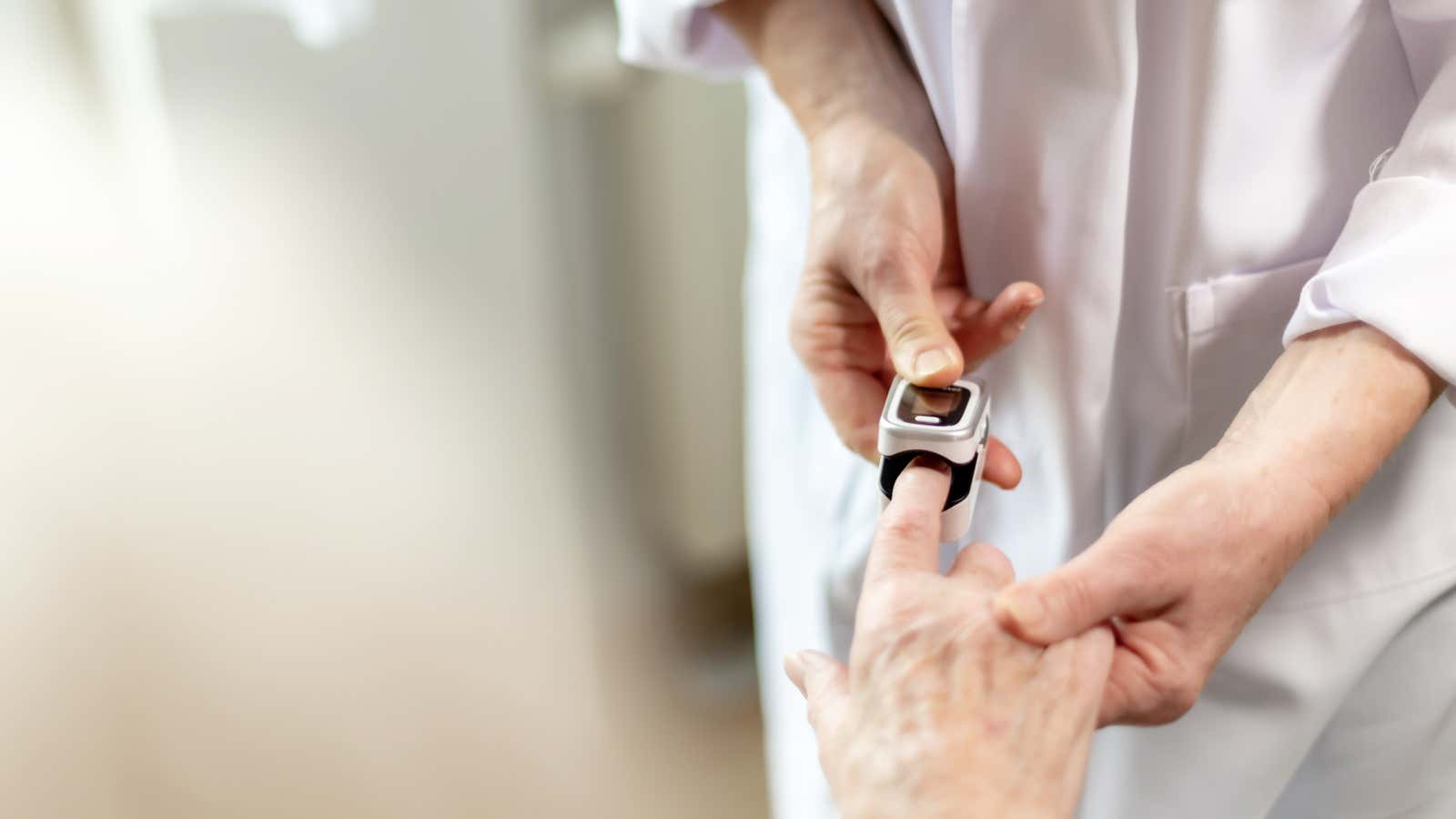Why You Shouldn’t Trust Your Phone’s Blood Oxygen Sensor

It is believed that you can use your smartphone to accurately measure SpO2 – the level of oxygen in your blood. And although now, of course, it would be convenient to have easy access to this number – the same one that you get when your doctor inserts his finger into this clip during an examination – I have a sad duty to inform you that whatever number your smartphone gives out you are most likely not accurate.
If you use an app or even a built-in function in your phone to measure your blood oxygen level, you are wasting your time. To be clear: this is different from using a pulse oximeter that connects to your phone to output data; in this case, the hard work is done by hardware specially designed and designed to take such measurements, and not by the “health sensor” of your smartphone.
However, don’t take my word for it: As Android Central reports, even Oxford University is involved in the denial. According to a recent report from the Center for Evidence-Based Medicine :
“There is no evidence that any smartphone technology is accurate for measuring blood oxygen saturation. In addition, the scientific basis of such technologies is questionable. Oxygenation levels obtained with such technologies cannot be trusted. ”
Researchers have tested both an app that is no longer available in the App Store, so this is a good thing, and Samsung’s claim that the red light-emitting diode of its smartphones can somehow detect your “stress”, which is somehow a component of your “Oxygen saturation levels”. … “Researchers at the University of Oxford strongly disagree, noting that” oxygen saturation cannot be measured with a smartphone to assess stress. “
What about other devices that supposedly can measure blood oxygen levels? Well, your new FitBit might give you readings, for example, but even the company notes in small print that you shouldn’t treat the number as gospel:
“Unless otherwise stated, Fitbit products and services are not medical devices and are not intended to diagnose, treat, cure, or prevent any disease. In terms of accuracy, Fitbit has developed products and services to track certain health information as accurately as possible. The accuracy of Fitbit’s products and services is not intended to be compared to medical devices or scientific measuring instruments. “
Why is everyone talking about oximeters now?
It’s simple. Knowing your blood oxygen levels can help you better understand if the symptoms you are experiencing could indicate a COVID-19 infection. I even say this with hesitation, since your blood oxygen level is just one data point – and not even the most important, as Dr. Albert Rizzo, chief physician of the American Lung Association, recently told Wirecutter :
“Most people don’t need a pulse oximeter,” he said. “The drop in oxygen levels of someone with COVID-19 is one of the criteria by which one should think about more care than staying at home, […] tracking their symptoms – cough, shortness of breath, chest discomfort – these are the main things. … “
And as Ada Stewart, MD, FAAFP recently told us , knowing how to use a pulse oximeter correctly is also a big part of the accuracy problem. As we wrote:
“… if the patient does not know how to properly use a pulse oximeter, trying to do so may end up adding unnecessary anxiety to an already frightening situation. For example, applying a small amount of nail polish can lead to an underestimate. “
While it can be helpful to have a basic knowledge of blood oxygen levels, if you have a real cause for concern about COVID-19, it is not very useful for you to measure it with a scientifically inaccurate device. You are likely to panic when your number drops five percent over the course of a day or so, unaware that this number may be within the normal range of device errors.
I haven’t seen any research directly comparing the quality of your Fitbit’s blood oxygen readings to, say, what you would get in a doctor’s office, so make sure those results are more than dissatisfied. FDA-approved pulse oximeters must have an accuracy of ± 3 percent. Oximeters included in various smart devices usually use a different technology to obtain their readings than those found on a finger measuring device and less accurate.
I can not tell you whether you a reliable way to measure the oxygen level in the blood is needed in the home, but if you do (or think so), you know that quick and easy solution (or inexpensive) solution may not give you the accuracy of you are looking for. Worse, using that number as the basis for a home COVID-19 diagnosis is likely to do more harm to your mental health than your physical health. If you feel like you really need one of these devices to measure blood oxygen levels on a regular basis, see your doctor. Better yet, see if they have any recommendations for an accurate scanner.